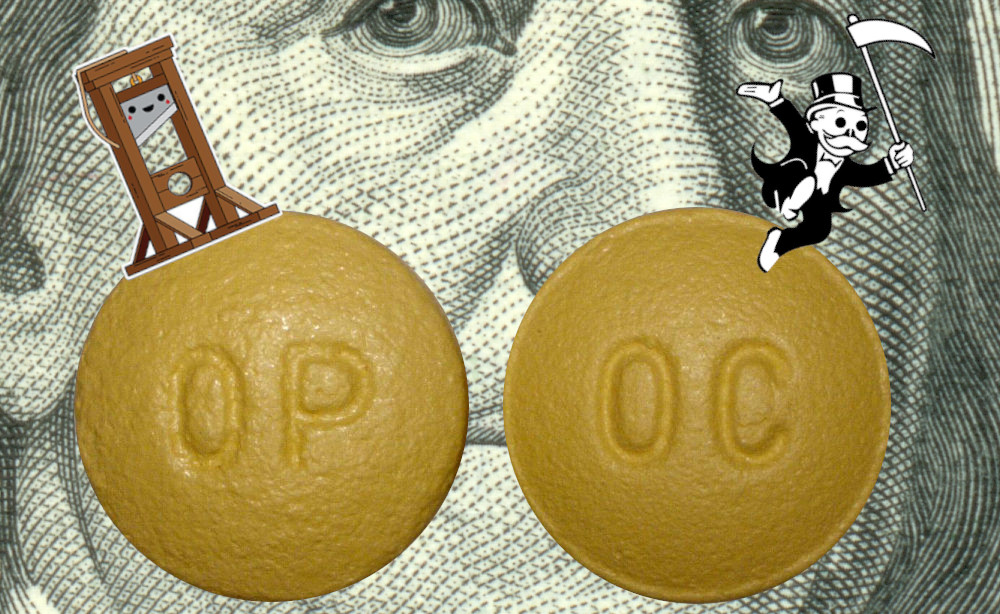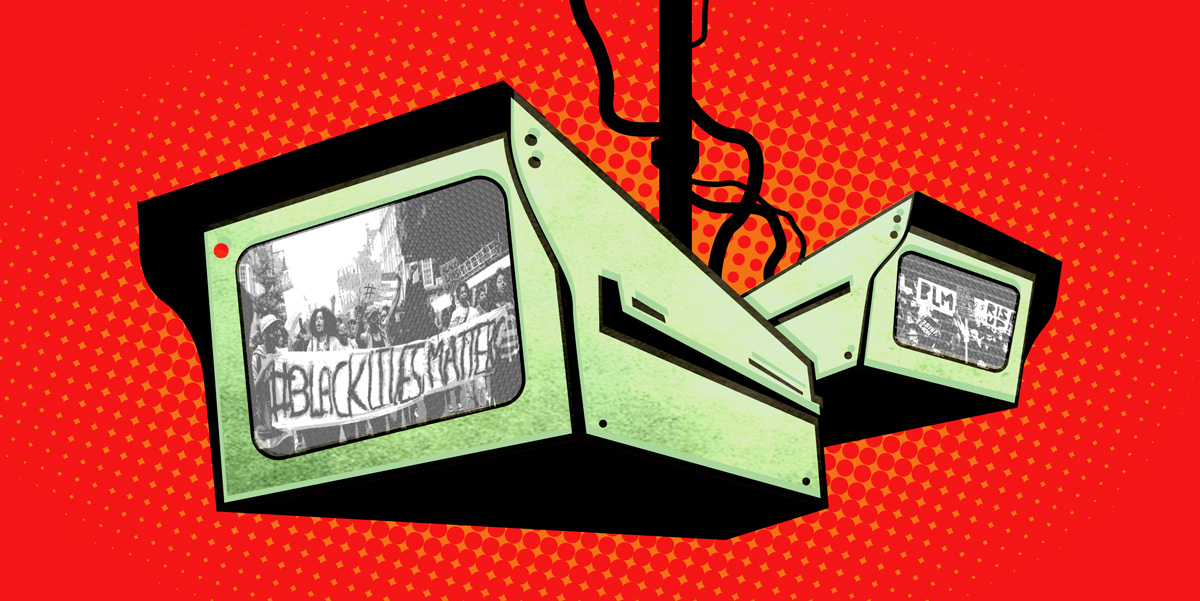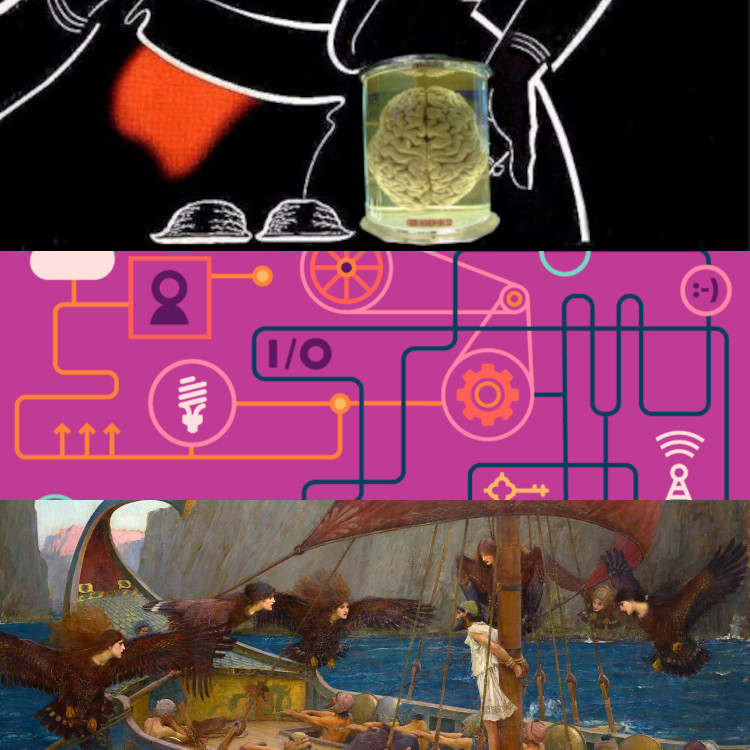
Say it with me now: a fine is a price. When companies profit from inflicting harm on the rest of us, a fine is just part of the price of doing business.
1/
1/

It's a numbers game: multiply the likelihood of getting caught by the expected fine and divide by the expected profit, and that's how many people you can murder for a buck.
Like the pharma companies, who used opioids to slaughtermore Americans than the Vietnam war.
2/
Like the pharma companies, who used opioids to slaughtermore Americans than the Vietnam war.
2/
These companies bribed doctors and pharmacists, lied about the science of addiction, lied about the deaths, lied about their products' efficacy, lied about the harm. The corpses piled higher and higher. They made billions. Billions and billions.
3/
3/
Four of the worst culprits - @jnjnews, @Healthcare_ABC, @McKesson and @cardinalhealth - agreed to pay $26b for the people they killed and the lives they ruined - and now they've advised investors that they plan on claiming the fines as tax-deductions.
4/
4/
Literally, a fine is a price - the price of doing business, claimable against profits on the companies' annual IRS filings, so that the public subsidizes their extremely profitable murder.
nakedcapitalism.com/2021/02/beyond…
5/
nakedcapitalism.com/2021/02/beyond…
5/
The companies were allowed to take these settlements without admitting wrongdoing. This is a common efficiency measure employed by federal regulators and prosecutors to secure a quick settlement rather than a drawn-out court battle.
washingtonpost.com/business/2021/…
6/
washingtonpost.com/business/2021/…
6/
Criminal cases that end with the accused coping a plea aren't unique to corporate murder, of course - more than 97% of people indicted for federal crimes plea bargain, proving that prosecutors are either psychic and only indict the guilty, or that the system is rigged.
7/
7/
But it's not just rigged to force everyday people who fall under the law's baleful glare to plead guilty irrespective of the truth - it's also rigged to allow giant corporations to walk away from their crimes without admitting their guilt (again, irrespective of the truth).
8/
8/
The lack of culpability is a distinction with a difference. Companies aren't permitted to write off fines, but the pharma giants say this isn't a fine, it's a payout to the victims - effectively a charitable donation. Since they committed no crime, it can't be a fine.
9/
9/
It may seem obvious, but when corporate murderers aren't held to account, they get to go on doing their business as if they weren't pariahs.
10/
10/
So the same companies claiming billions in writeoffs for opioid settlements also pulled in billions in tax subsidies under the CARES Act, even as they made billions in profits from that same pandemic. Heads they win, tails we lose.
11/
11/
40% of Americans say they won't, or probably won't, get vaccinated against covid. They often cite outlandish stories about microchips in the vaccines (speaking as a computer scientist, I'd like to study those chips and their antennas and power-supplies, wow!) .
12/
12/
These stories don't hold up to scrutiny, and the people who argue for them say obviously outlandish things, and yet the number of people who believe them is frightening.
14/
14/
Then there's everyone who isn't worried about microchips or Bill Gates, but thinks the pharma companies would cheerfully kill them for a buck with untested, potentially deadly products, and that the regulators we hope will protect us from bad science will turn a blind eye.
15/
15/
While the microchips story is far more outlandish than the mistrust one, both of them share the same epistemological foundation: that the official truth can't be trusted because the process by which it is arrived at has been corrupted by corporate power.
16/
16/
Who can deny this? We know for a fact that the pharma companies conspired to murder us, that their regulators let them do it, and that they got away with fines that totalled less than they earned from their murders, and now they're going to write off their fines.
17/
17/
And it's a fact that Bill Gates has done some pretty sinister stuff in his day, and he got away with it, too - his billions originate with the creation of a giant, rapacious monopoly that ruined lives and gouged the public to reward its shareholders, Gates chief among them.
18/
18/
The tale that Gates retired from monopolising and became a cuddly humanitarian doesn't bear up to scrutiny. Sure, some great stuff that comes out of the Gates Foundation, but let's not forget the billions they've funnelled to ending public education:
apnews.com/article/92dc91…
19/
apnews.com/article/92dc91…
19/
Gates and other billionaire dilettantes turned America's poorest children into guinea pigs for an failed experiment in charter education, while waging war on teachers' unions:
ineteconomics.org/perspectives/b…
20/
ineteconomics.org/perspectives/b…
20/
Gates's extreme ideology of private profit over public benefit played a toxic role in covid vaccine development - just not a role that has anything to do with microchips.
21/
21/
Rather, it was the Gates Foundation that arm-twisted Oxford into abandoning its pledge to make its vaccine free for all to produce. Instead, it sold exclusive rights to its publicly funded vaccines to @AstraZeneca.
khn.org/news/rather-th…
22/
khn.org/news/rather-th…
22/
The Gates Foundation ensured that a giant pharma monopolist would reap billions, and Oxford millions - and that the world's poorest nations would lose guaranteed access to locally produced vaccines.
23/
23/
It's irrational to worry about microchips in vaccines, but it's 100% rational to worry that pharma companies will privatize every gain and socialize every loss, even loss of life. From @moderna_tx to Astrazeneca, Big Pharma turns public research into private billions.
24/
24/
And it's irrational to worry that Bill Gates wants to use vaccines to reduce the population or track us with 5G, but it's 100% rational to worry that he is a sociopathic ideologue whose philanthropy exists in part to further his extremist agenda.
25/
25/
Telling people to "trust the science" isn't just flawed because the science is a moving target - it's flawed because the science is often corrupted, and even when they corruption comes to light, the penalties are tax-deductible.
26/
26/
If you'd like to read or share this thread as a blog post, here's a link to it on my pluralistic.net, which is entirely free from surveillance, ads, or trackers:
pluralistic.net/2021/02/14/a-f…
eof/
pluralistic.net/2021/02/14/a-f…
eof/
• • •
Missing some Tweet in this thread? You can try to
force a refresh










